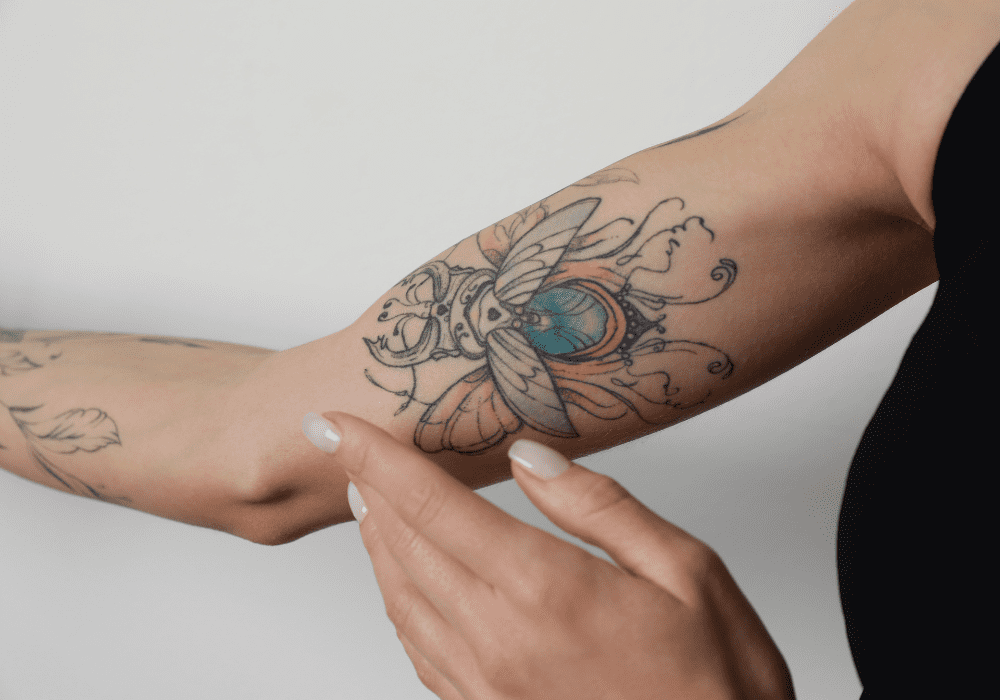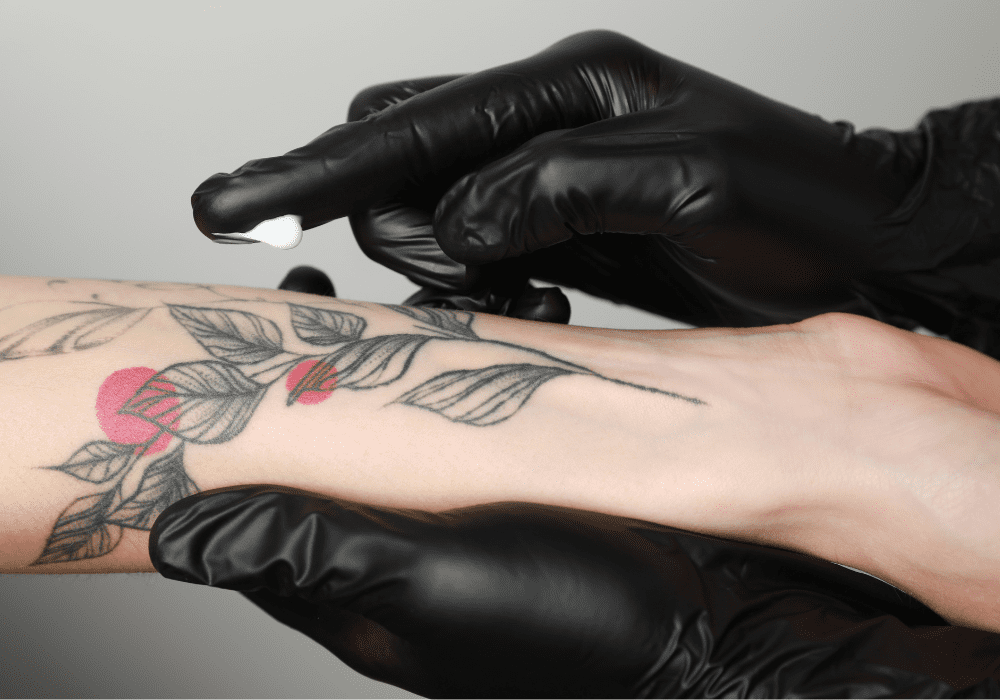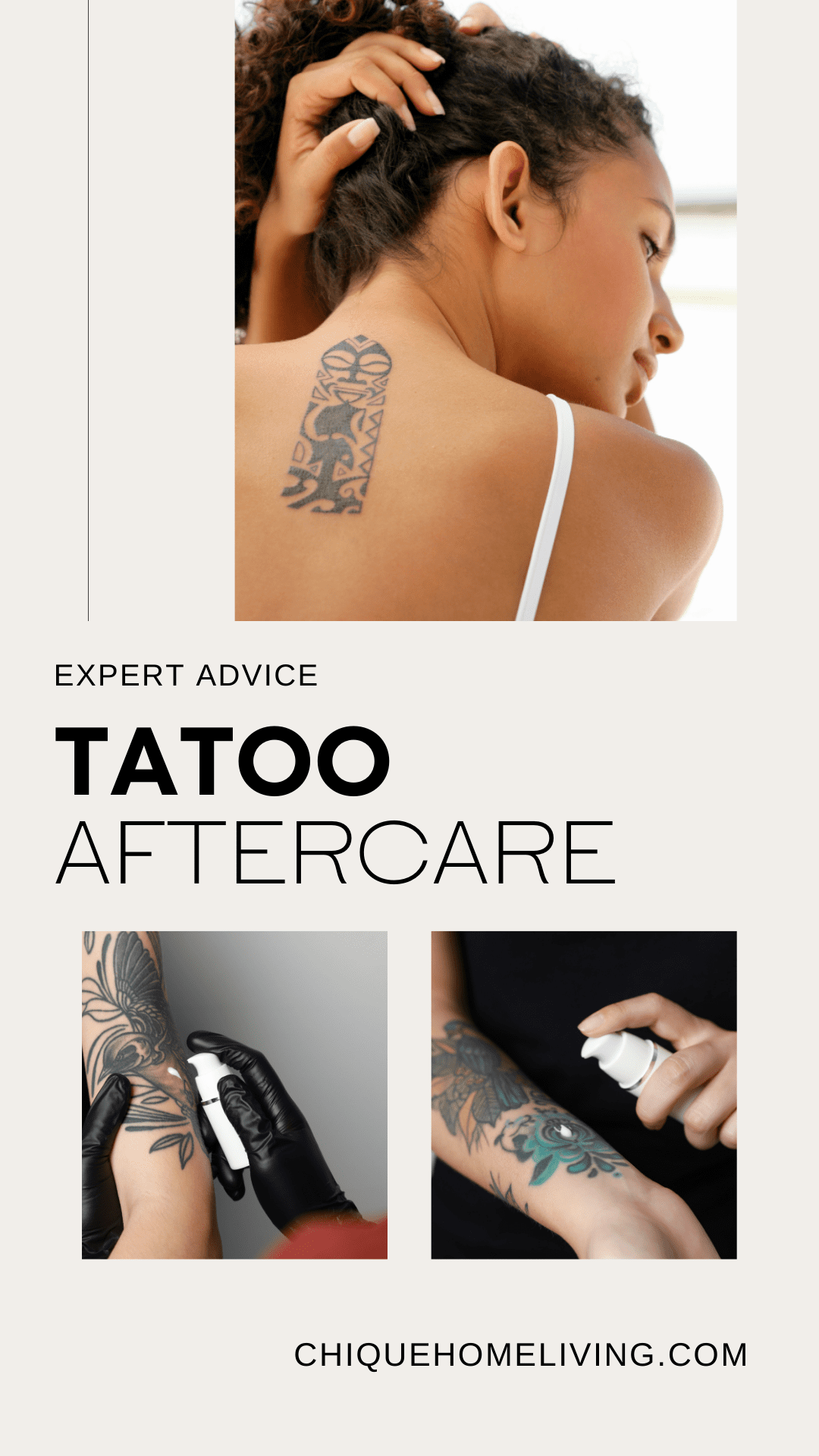Tattoo Aftercare: Expert Advice
Getting a tattoo is an exciting and personal experience that allows individuals to express their individuality and creativity. However, the process doesn’t end with the tattooing session.
Proper aftercare is crucial for ensuring a healthy healing process and maintaining the longevity and vibrancy of your tattoo.
In this article, we will explore essential tips for tattoo aftercare that will help you achieve optimal healing and long-lasting results.

Listen to Your Tattoo Artist
Your tattoo artist is your best source of aftercare information. They are experienced professionals who have a vested interest in your tattoo looking its best. Follow their instructions carefully regarding the duration of bandaging, cleaning routines, and ointments or creams to use.
Each artist may have slightly different recommendations, so it’s important to listen to their specific advice to avoid any complications during the healing process. Make sure to ask your tattoo shop in Roanoke, VA for their tips.
Keep It Clean
Maintaining proper hygiene is crucial for tattoo aftercare. Gently wash your tattooed area with lukewarm water and mild, fragrance-free soap. Avoid using abrasive materials such as washcloths or loofahs, as they can damage the delicate healing skin. Pat the area dry with a clean towel, making sure not to rub it.
Cleaning your tattoo regularly, especially before applying any aftercare products, will prevent the build-up of bacteria and reduce the risk of infection.
There are different types of dressings that can be used for tattoo aftercare, each with its own benefits. One common option is a non-stick sterile dressing, which provides a protective barrier while allowing the tattoo to breathe.

This type of dressing is ideal for larger tattoos or those in areas prone to friction, as it helps prevent clothing from sticking to the tattooed area. Another option is a transparent film dressing, which creates a seal over the tattoo and provides a barrier against bacteria and other contaminants.
Transparent film dressings are particularly useful for small tattoos or those in hard-to-reach areas, as they allow for easy monitoring of the healing process.
Ultimately, the choice of dressing will depend on the size, location, and specific needs of your tattoo, so it’s best to consult with your tattoo artist for their recommendation.
Moisturize, but Don’t Overdo It
Applying a suitable moisturizer is vital to keep your tattooed skin hydrated and promote proper healing. Opt for a fragrance-free, hypoallergenic lotion or tattoo-specific aftercare product recommended by your artist.
Apply a thin layer to the tattooed area, making sure not to suffocate the skin. Over-moisturizing can lead to excessive scabbing or even loss of ink.
Follow your artist’s guidelines regarding the frequency and duration of moisturizer application to strike the right balance.
Aquaphor is a popular brand of ointment that is often recommended for tattoo aftercare. It is a petroleum-based product that creates a protective barrier over the tattooed skin, sealing in moisture and preventing excessive dryness.
Aquaphor is known for its excellent healing properties, as it helps soothe and moisturize the tattooed area, promoting optimal healing.
However, it’s important to note that Aquaphor is an occlusive ointment, meaning it can create a barrier that limits the skin’s ability to breathe. As such, it is typically recommended for use during the initial healing phase of the tattoo.
After the first few days, it is generally advised to transition to a lighter, fragrance-free lotion or cream to allow the skin to breathe more easily.
Always follow the specific recommendations provided by your tattoo artist regarding the use of Aquaphor or any other moisturizer to ensure the best possible healing outcome for your tattoo.

Avoid Excessive Sun Exposure
Protecting your tattoo from the sun is essential for preventing fading and damage. Ultraviolet (UV) rays can be harsh on fresh tattoos, leading to premature aging and discoloration. Whenever possible, keep your tattoo covered with loose clothing or a clean, breathable bandage.
When you can’t avoid sun exposure, apply a broad-spectrum sunscreen with a high SPF specifically formulated for tattoos. Reapply regularly, especially after swimming or sweating, to ensure continuous protection.
Resist the Itch
As your tattoo heals, it’s natural for the skin to itch. However, scratching can disrupt the healing process and potentially cause infection. Instead of scratching, gently pat or tap the itchy area with clean hands.
Applying a cool, damp cloth can also help relieve the itching sensation. Additionally, avoid exposing your tattoo to situations that may cause excessive sweating or irritation, such as saunas, hot tubs, or strenuous activities.
Stay Away from Pools and Baths
While it may be tempting to take a relaxing dip in a pool or bathtub, it’s best to avoid them during the initial healing phase. Pools, hot tubs, and even natural bodies of water can harbor bacteria and chemicals that can increase the risk of infection or fading.
Wait until your tattoo is fully healed before enjoying these activities to protect both the appearance and health of your tattoo.
Proper aftercare is essential for ensuring the best possible healing and long-term maintenance of your tattoo. By following these essential tips, including listening to your tattoo artist’s instructions, keeping your tattoo clean, moisturized, and protected from the sun, resisting the urge to scratch, and avoiding potentially harmful activities, you can enhance the healing process and enjoy a vibrant and long-lasting tattoo.
Remember, taking care of your tattoo is a lifelong commitment to preserving the artistry etched on your skin.
Pin for Later!




